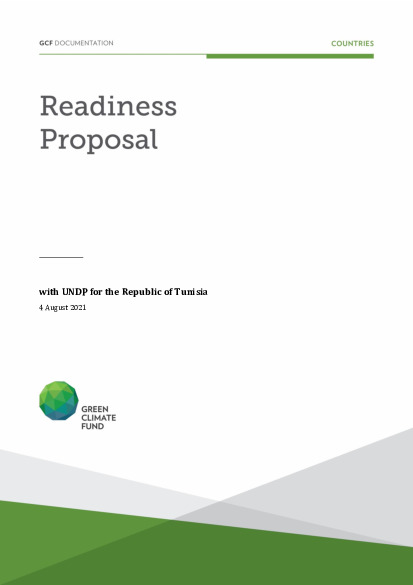National Adaptation Plan: Advancing risk-informed development and land-use planning in Tunisia

National Adaptation Plan: Advancing risk-informed development and land-use planning in Tunisia
Situated in North Africa, Tunisia is in one of the world’s most water-scarce and dry regions and is highly dependent on climate-sensitive agriculture. In addition, a large share of its population and economic activity is in low-lying and flood-prone coastal zones. By 2050, climate change projections for Tunisia predict temperature increases between 1.6°C and 2.7°C, reduced precipitation by 10 to 30 percent, rising sea levels by 15 to 18 cm and escalating extreme weather phenomena (floods and droughts). These risks are likely to result in major environmental and socio-economic impacts and affect various sectoral activities such as health, agriculture, and tourism.
The Government of Tunisia is aware of these challenges and has adopted a proactive policy of fighting climate change, via both mitigation and adaptation measures, as shown in its NDC.
Tunisia has taken important steps to plan for adaptation, with actions primarily focused at the sectoral level. The country has several sectoral adaptation plans and strategies that highlight the need to address climate risks and outline priority actions for key sensitive sectors (agriculture, tourism, coastal, health). These plans have started to build awareness among affected ministries and stakeholders. Currently, the Government of Tunisia wishes to further a cross-sectoral approach to adaptation planning and effectively guide choices for resilient development planning and investments that consider climate risks and integrate adaptation needs, both at central and local levels.
Tunisia has been reforming its planning processes since the 2011 revolution, with a commitment to participatory processes and ongoing reforms for a decentralized governance system that empowers local authorities. A new “Local Authorities Code” was adopted in April 2018 with a new allocation of responsibilities provided to local governments to drive local planning and environmental management. Tunisia hosted the country’s first-ever democratic local elections, the municipal elections, in May 2018 and all municipalities now count with newly local officials elected for a period of 5 years.
Over the past two years, the Government of Tunisia started developing its National Adaptation Plan and developing a road map for implementing its NDC. To date, this process has taken stock of recent progress in adaptation planning and NDC implementation and produced a road map for the NAP. Entry points for integrating adaptation and which the project will be addressing include the National Economic and Social Development Plan (which is renewed every five years, the current plan 2016- 2020 has a major component on the green economy which integrates some adaptation actions) and land use planning (a National Master Land Use Plan is developed every 20- 25 years and is due for renewal). As a complement, the Ministry of Local Affairs and Environment and the Ministry of Agriculture, Hydraulic Resources and Fisheries (MARHP) in partnership with FAO and UNDP coordinated their efforts while elaborating the proposals to ensure synergies and coherence between the consultations on deepening agricultural sector adaptation planning under the FAO proposal and the overall cross-sectoral activities feeding into the development of a National Adaptation Plan framework.
In addition, and to facilitate the implementation of the Tunisia NDC, the Ministry of Local Affairs and Environment launched in July 2017, with the support of the United Nations Development Programme (UNDP), the national consultation process for the NDC implementation road map. The different stakeholders (public institutions, private sector, research institutions and civil society) were gathered to discuss the status of the NDC implementation so far and identify constraints to the implementation of the various mitigation and adaptation programmes.
The project is considered an important backbone for the agenda 2030 implementation and the NDC implementation and update processes underway in Tunisia.